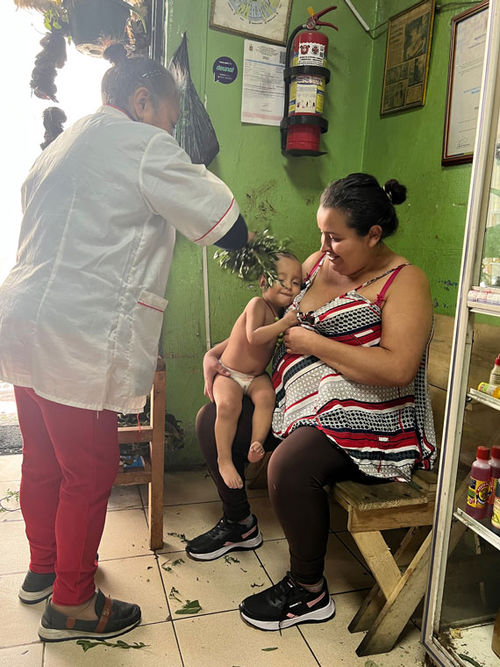QUITO, Ecuador -- Wandering the streets of old town Quito on a beautiful sunny day last week, it would have been hard to guess the country was under a state of emergency.
Tourists roamed the plaza. Restaurants, shops and parks were bustling. And the vibe was nothing but serene.
In fact, the only change I could see from when I was here two years ago was an occasional, small group of soldiers walking the streets. And police officers and private security officers were now donning flak jackets.
Nonetheless, they, too, contributed to the calm that I felt as a tourist. At one point, as I watched a family with small children playing with a puppy in the plaza, two female officers approached, smiling, to ask where I was from and to offer me a map.
On the hilly, cobblestone streets, the traditional curandera shops for native healers were busy. And a man who had brought four goats down the from hillside wandered the streets selling shots of their fresh milk to passersby.
Indeed, life on the streets of this historic city, the second largest in Ecuador, seemed far away from the cartel-related violence that erupted earlier this month after a reputed gang leader escaped from prison in the country's largest city of Guayaquil.

A woman brought her baby to a curandera in Quito for a traditional herbal cleansing. Photo Credit: Jeri Clausing
While the locals said much of the country went into self-imposed lockdown in the initial hours and days after drug gangs very publicly seized temporary control of a Guayaquil television station two weeks ago, most of the country is back to almost normal.
On Sunday, locals packed the streets, parks, churches and restaurants of downtown Cuenca, and the minister of tourism, Niels Olsen, told me in an emailed statement that the government "has seen significant progress toward restoring peace and security."
"Tourist areas, including the Galapagos Islands, have maintained their usual tranquility, with all tourism services operating normally."
The state of emergency and ensuing declarations against gangs gave the country's new president the authority he needed to enlist the military to aid in a crackdown on gangs and cartels. But that activity is largely centered on Guayaquil and the coastal areas.
Since arriving last week, I've only seen two small groups of military walking in Quito. And there was no visible military presence at the Quito airport, along the highways around Quito or in the popular tourism destination of Cuenca.
And while officials say no tourists or tourist areas have been affected, travel companies are taking safety, and customer concerns, seriously.
Metropolitan Touring, one of the region's largest tour operators and the company that sponsored my visit here, said it is working with travel agents and customers to rebook wary travelers away from Guayaquil and through Quito if they desire. And the company immediately hired a security consultant to help it update its protocols and review the security practices of its suppliers.
Still, company spokesman Dominic Hamilton noted that issues with foreigners "are very rare, and particularly nothing related with anything to do with drug violence and gang violence."